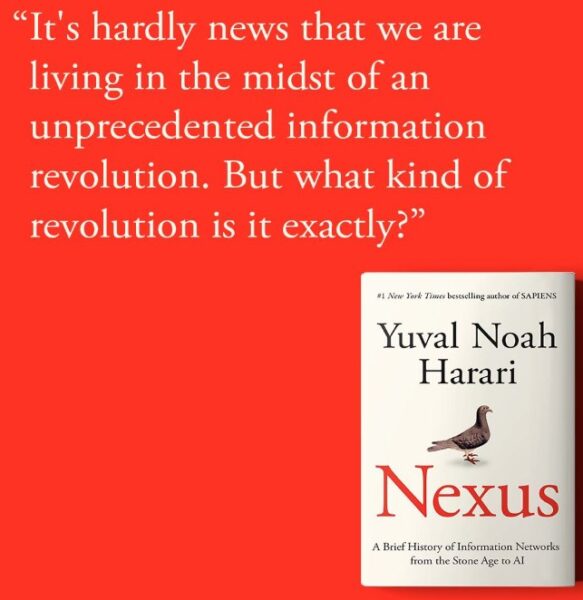Yuval Noah Harari, the acclaimed author of Sapiens and Homo Deus, brings another riveting and insightful work to the table with Nexus: A Brief History of Information Networks from the Stone Age to AI. In this book, Harari explores the fascinating development of human communication, tracing its evolution from primitive stone tools used for recording information to the vast, interconnected digital networks of today that shape the modern world.
A Comprehensive Overview of Human Connectivity
- Nexus* offers readers an engaging history of how humans have transmitted, stored, and processed information throughout the ages. Harari examines how the first networks, such as oral traditions and cave paintings, eventually paved the way for written language, the printing press, and the telegraph. Fast-forward to today, and we find ourselves surrounded by an unprecedented global information network powered by the internet, social media, and artificial intelligence.
One of the strengths of Nexus is Harari’s ability to connect seemingly disparate historical events with technological progress, making the complex relationship between human communication and technology both understandable and compelling. He takes the reader on a journey through the revolutions of information-sharing, reflecting on their impact on societies, economies, and cultures.
Useful for Marketing and Advertising
For marketers and advertisers, Nexus offers invaluable lessons about the power of information networks and their ability to shape consumer behavior and influence decision-making. The book offers insights into the ways that information technologies have altered human communication, from the rise of mass media in the 19th century to the digital revolution that has fundamentally changed the advertising landscape.
One of the most important takeaways for those in marketing is Harari’s exploration of how information flows through different systems and networks, shaping perceptions and driving behavior. For example, the rise of social media and targeted advertising today is a direct result of centuries of technological advancement in the way information is shared. Harari’s insights into these developments can help marketers better understand how consumers are influenced by the vast networks that shape their online and offline interactions.
The book also touches on the growing role of artificial intelligence in collecting and analyzing data, making it incredibly relevant for modern advertising strategies. AI’s ability to segment and target audiences more precisely than ever before is transforming how businesses approach customer engagement. Harari’s reflections on AI’s implications for the future of communication and advertising will help marketers anticipate the challenges and opportunities ahead.
Final Thoughts
In Nexus, Yuval Noah Harari provides an intellectually stimulating look at the history of information networks and their profound impact on humanity. The book is not only a deep dive into technological progress but also a valuable resource for anyone interested in understanding how information flows shape the modern world, especially in the realms of marketing and advertising.
For anyone looking to navigate the fast-changing digital landscape, Harari’s insights offer a roadmap for understanding the forces that have brought us to where we are today—and where we might be headed tomorrow. Whether you’re a history buff or a marketing professional, Nexus is a must-read.
